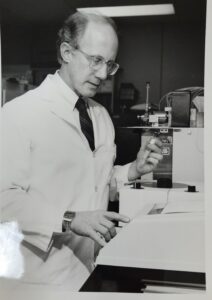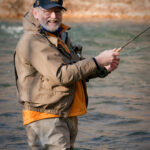One author [Dr. Roberts] particularly remembers Dr. Lightfoot’s critique of how patients are shunted between specialties, with no one taking responsibility for the patient. A corollary dictum that he ingrained in us was: “Never let a consult service tell you what it isn’t: Ask them what they think it is.”
He symmetrically required rheumatology consults meet the same benchmark. Fellows and colleagues were always required to tell the primary service what we thought it might be, and not just that it wasn’t rheumatologic.
He was fond of encouraging colleagues to say, “I don’t know”—especially when the question was a prediction of a test result. When the learner had learned to say, “I don’t know,” Dr. Lightfood would reply, “I know,” perhaps drawing a quizzical look from the learner. Then it was back to clinical reasoning. He would say, “You know what the test result is going to be. It’s either positive or negative or indeterminant; what will you do in each case?”
Dr. Lightfoot also liked to remind younger colleagues that a detailed history and meticulous physical exam were also tests a physician should perform.
Follow-up appointments were also a test in this regard. He would say, “Never miss a tip from the jockey”—the jockey being the patient. “Never rush a patient” was another favorite.
As a strong proponent and practitioner of the Socratic method, he would not give answers, but rather try to chisel critical thought to help get to an answer.
He would quote Sherlock Holmes: “When you have eliminated the impossible, whatever remains, however improbable, must be the truth.” The Holmesian process then linked to his teaching script for Bayesian prior probability, the idea of placing metaphorical bets, not on patient outcomes, but on elements of the differential diagnosis and pending test results. Once the test results are back, then comes changing the bets on differential diagnoses, á la Kentucky horse racing: “You have $100 at the track. How many dollars are you going to put on your first horse?” And by horse he meant an alternative working diagnosis within the differential. Maybe that was his way of bringing Kentucky local color into didactics.
He would reiterate “plan ahead” at least once a day and would often return to the metaphorical betting analogy. “If you had $100, which horse would you bet on and how much? Why that much of your $100 on that horse and not this one?” Always have a bet, and based on new test results, findings or retaking the history, change your bet accordingly.

